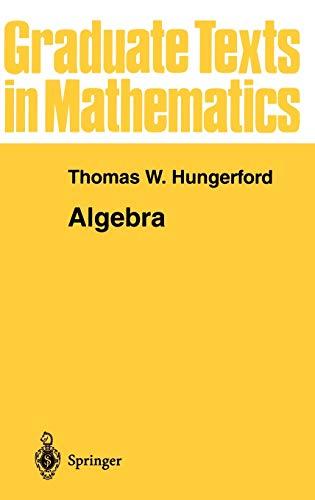(a) If I is an ideal of R, then P(I) = I P(R). In particular, P(P(R))...
Question:
(a) If I is an ideal of R, then P(I) = I ∩ P(R). In particular, P(P(R)) = P(R).
(b) P(R) is the smallest ideal K of R such that P(R/K) = 0. In particular, P(R/P(R)) = 0, whence R/P(R) is semi prime.
(c) An ideal I is said to have the zero property if every element of I has the zero property (Exercise 1 (c)). Show that the zero property is a radical property (as defined in the introduction to Section 2), whose radical is precisely P(R).
Data from exercise 1(c)
An element r of R is said to have the zero property if every m-system that contains r also contains 0. Show that the prime radical P(R) is the set M of all elements of R that have the zero property.
Fantastic news! We've Found the answer you've been seeking!
Step by Step Answer:
Related Book For 

Algebra Graduate Texts In Mathematics 73
ISBN: 9780387905181
8th Edition
Authors: Thomas W. Hungerford
Question Posted:





